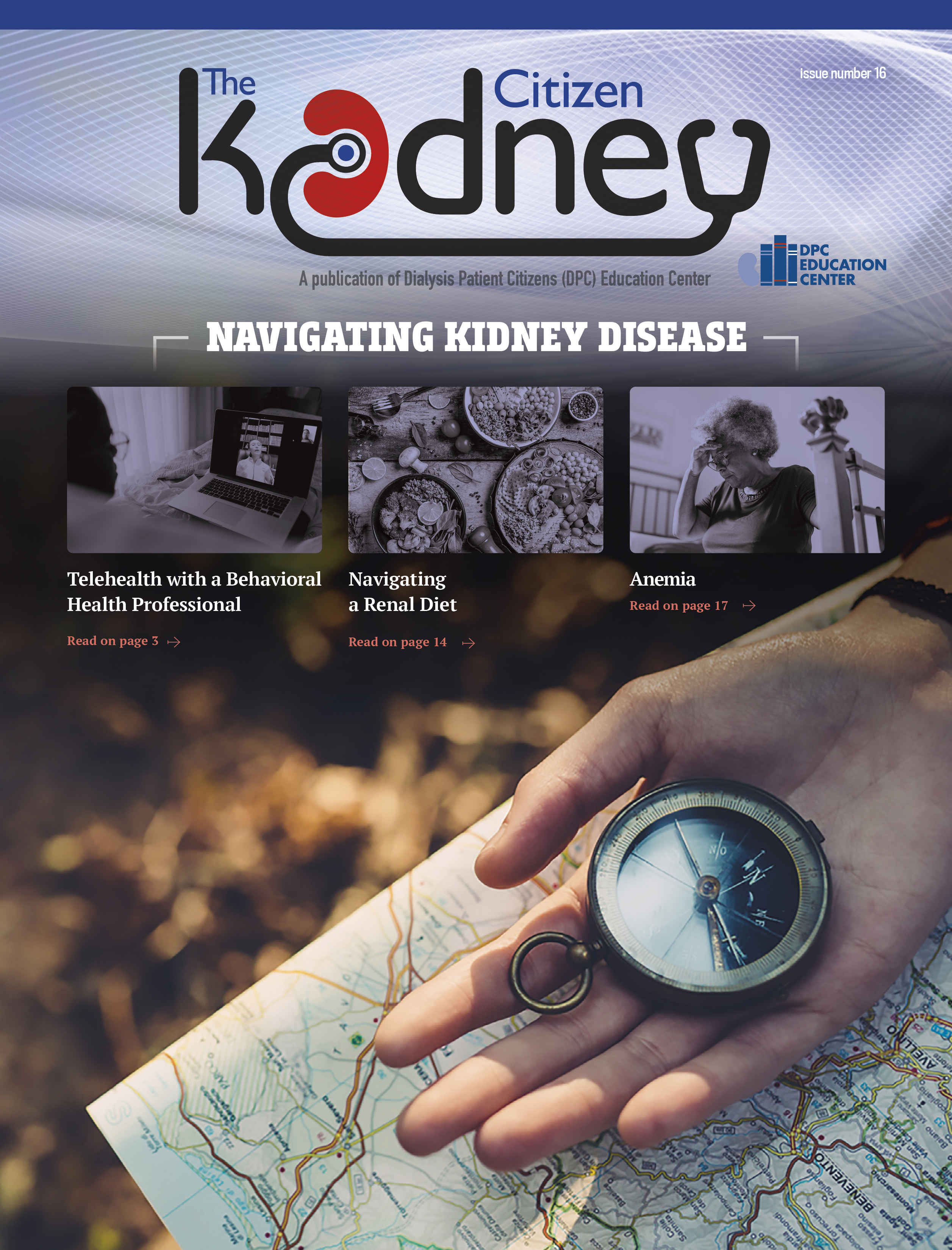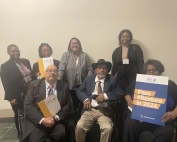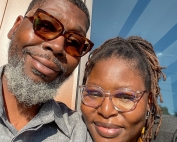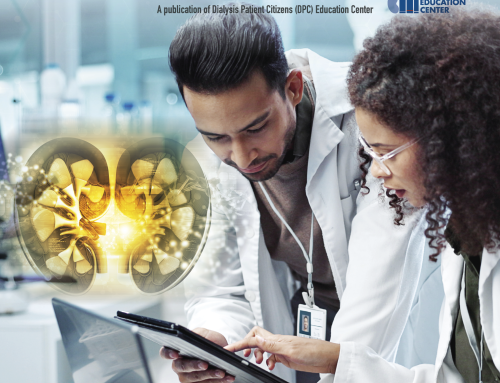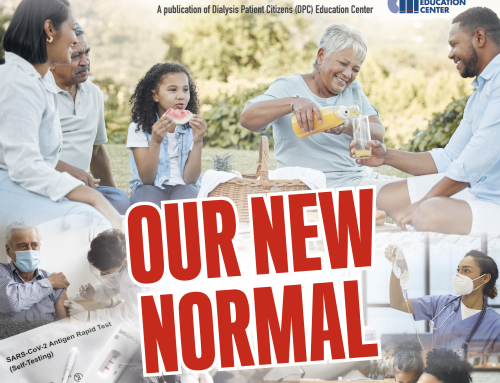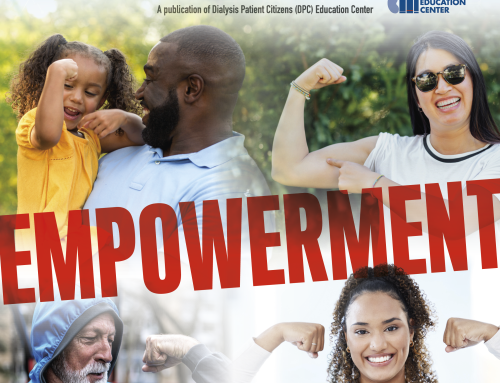In this Issue:
- Telehealth with a Behavioral Health Professional: What to Know Before You Start
- Advanced Care Planning: Turning “What If?” Into “Here’s How”
- Blood Sugar Testing to Manage Type 2 Diabetes in Patients Who Don’t Need Insulin
- Will the COVID-19 Pandemic Ever End?
- Conquering Dialysis Fatigue
- Navigating a Renal Diet: Decoding the Mystery
- Anemia in People with Chronic Kidney Disease
- The Social Worker – Patient Relationship: One Social Worker’s Reflections
- Supreme Court Erases Kidney Patients’ Insurance Protections
- Building Legacy Through Advocacy
President’s Message
 Hello my Kidney Community,
Hello my Kidney Community,
We are now in the last quarter of the year and have the opportunity to either catch up or finish personal projects that are lingering in the background. Many of us have set goals, resolutions, and projects at the beginning of the year that we have left unaccomplished or halfway done. I am here to tell you there is no time like the present to get it done. Since we are in the fall and holiday season, and as we approach the end of the year, this is a great time to strategize a plan to take into the new year.
Use this time to make or reschedule important doctor appointments. It may have been a while since you saw your PCP or had necessary blood work done. Early detection of potential health problems is important in our CKD community. You may need to be referred to specialists, recommended hospital procedures, or provided with more advanced care. Schedule your annual physical to address any health concerns you have and take preventative action. Take this time to speak to your healthcare team about helping you create a personalized health care plan that works best for you. This should include working to meet specific goals, addressing unique needs, and following an individually tailored schedule of lab work, fitness training, immunizations, and other required tests. Ask your doctor to provide recommendations on your exercise routine, as well as advice on following a healthy diet, getting a better night’s sleep, managing stress, and assessing your risk of other complications.
It can be difficult to remember everything you want to discuss at your appointment. I always suggest making a list of questions and concerns ahead of time and keeping it in a journal for reference with the following information for every visit: your questions and concerns, medications you currently take, specialists you have seen recently, and a list of improvements you would like to see with your health.
As patients, we have to practice listening to our bodies. Remember, if you do not use it, you lose it! Keep active and stimulate your brain as much as possible with the information we provide on the DPC Education Website and social media pages. With the holidays approaching, we may experience many emotions such as happiness, joy, depression, or anxiety. If you are suffering from feelings of sadness, extreme stress, and alcohol or drug dependence, talk to your social worker, patient advocate, and doctor about ways you can get help.
As ESRD patients, we go through psychological changes on a daily basis. I remember as an ESRD patient I had experiences of feeling lonely and depressed. I had to take time to make sure I reassessed the people I had around me to ensure that if I could not recognize the feelings I was experiencing, then at least my support group would know and reach out even if it only meant to listen.
Remember to enjoy the season and start the next year on a healthy and positive note. Although holidays reconnect us with loved ones, they can be fraught with complex friends and family dynamics, money worries, dialysis treatment scheduling, and the endless preparation of food. Make time for yourself, it is okay to say no to things you don’t want or don’t have time to do. It is ok to say no to food selections that will not leave you feeling your best. Plan ahead and set boundaries for your time. Do what you can ahead of time, whether that means having a healthy snack before holiday meals so you do not overindulge on sweets, or preparing your own dialysis friendly meal to bring to the holiday gatherings. Shopping in bulk, meal prepping, and freezing meals can save time, save money, and reduce unhealthy meal choices. Decide what matters most and do things that truly bring you joy.
This time of year triggers depression for a variety of reasons. Do not be embarrassed to ask for help, talk to your doctor about counseling, and reach out to those who are without family and friends during this time of the year. Holidays are especially difficult for those who are alone. Do not give up on your diet and workout plans. Take these couple of months to review and manage your wellness plan. Early detection of underlying disease can sometimes result in better prognosis and better outcomes, especially since CKD and ESRD patients crash into dialysis while already having chronic health conditions. Use this holiday season to also review and update personal and family history, especially if you see numerous providers. Let our DPC Education Center site serve as a reference to keep you informed. Allow our educational information, webinars, and support group to be your partner in your well-being.
Merida Bourjolly
President of DPC Education Center Board of Directors

